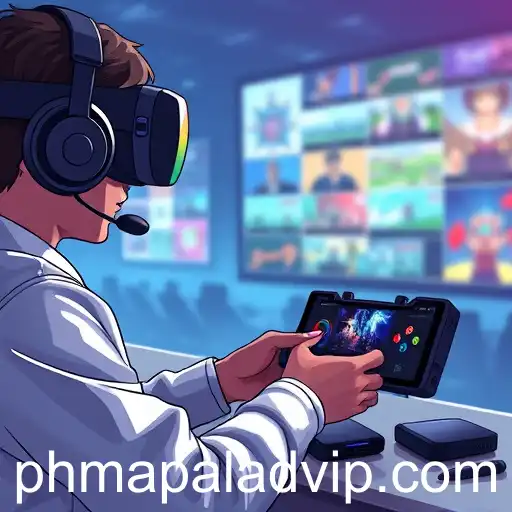
In recent years, the landscape of online English games has witnessed significant transformation, driven largely by technological advancements and changing consumer preferences. With the keyword 'phmapalad' resurfacing in online searches, it marks a resurgence in interest towards historical gaming experiences revived with modern twists.
Phmapalad, an intriguing game rooted in English linguistic challenges, has become emblematic of this shift. Originally launched as a niche puzzle game, it has now evolved to incorporate augmented reality (AR) features, offering players an interactive blend of gamified learning and entertainment. The integration of AR transforms the traditional gameplay, allowing users to experience words and puzzles in three-dimensional space.
The year 2025 has seen virtual reality (VR) further expand its scope within the gaming sector, and 'phmapalad' is no exception. Combining VR with phmapalad’s existing framework not only personalizes the player's journey through immersive environments but also enriches vocabulary acquisition with real-time feedback and multilingual support, accommodating the burgeoning global user base.
As game developers strive to cater to a broader demographic, inclusivity has taken center stage. A rising trend in the gaming community is the incorporation of narratives and content that reflect diverse cultures and languages. This aligns with a wider societal push for equality and representation within digital spaces, making phmapalad a pioneer in promoting cross-cultural understanding through gaming.
Simultaneously, the incorporation of artificial intelligence (AI) has further enriched the gaming experience. AI-driven moderators now facilitate dynamic learning paths in phmapalad based on player proficiency, ensuring that each session is both challenging and rewarding. This adaptability has proven essential in maintaining engagement and providing personalized experiences.
Moreover, the economic aspect benefits from these technological strides. The surge in popularity due to enhanced gameplay features and broader audience appeal has led to increased investment opportunities in the sector. This economic spin-off is evident in the growing number of partnerships with educational institutions that recognize the educational merit inherent in gaming.
Considering the current dynamics, the future of online English games looks promising. The interplay between technology, cultural representation, and education continues to redefine what players can expect. This evolving market challenges developers to innovate continually, ensuring games like phmapalad remain at the forefront of player interest. The extent of this evolution not only spells potential for economic growth but also heralds a new era of learning and interaction through gaming.


